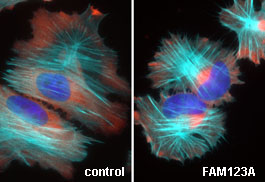Though cancer screening has come a long way, physicians still do not thoroughly discuss with patients the advantages and disadvantages of these procedures before decisions are made to undergo the screenings, according to a new study co-authored by a physician from The University of North Carolina at Chapel Hill’s Gillings School of Global Public Health.
The study, “Lack of Shared Decision Making in Cancer Screening Discussions: Results from a National Survey,” published online by theAmerican Journal of Preventive Medicine, found that doctors frequently tell patients the advantages of cancer screening procedures for breast, colorectal and prostate cancers, but much less often discuss disadvantages. These practices run counter to established shared decision-making guidelines.

“Cancer screening and a number of other medical services are not all just plain benefit,” said study co-author Michael Pignone, MD, MPH, adjunct professor of health behavior at UNC’s Gillings School of Global Public Health and professor of medicine in UNC’s School of Medicine.
“People should really know what they’re getting into,” he said.
The study surveyed 1,134 adults – 477 men and 657 women – who were 50 years of age or younger and had been diagnosed with cancer within the previous two years. Participants were asked about their perceived cancer risk, how informed they felt about cancer tests and whether their health-care provider addressed pros and cons of testing. Of the participants, 1,098 reported discussing their options with a physician. While more than 51 percent of the physicians discussed the pros of screening procedures in part or extensively, fewer than 14 percent of the discussions addressed the cons.
There were also marked disparities in how physicians discussed these options with men and women. Overall, depending upon the type of cancer screening discussed, between 63 and 71 percent of the time, physicians explained that the testing was optional. However, in only 43 to 57 percent of the cases involving women were the patients asked if they wanted screening; when men were involved, more than 70 percent of the patients were asked whether they wanted testing.
Among all study subjects, 69 to 93 percent (depending upon the cancer) underwent screening, and 55 to 76 percent said they would definitely make the same decision to undergo the screening again, even if the cons of the procedures were articulated.
Pignone said patients can improve their ability to participate in shared decision making by arriving at the appointment to discuss specific questions about the procedures as it relates to their health, values and quality of life.
“A prepared and informed patient is likely to get the most out of an encounter with his or her doctor,” he said.
However, he and his co-authors reinforce that accepted shared decision-making protocols make it incumbent upon the physician to adequately inform patients of all health implications of the screening procedures.
The full study can be found online.
Gillings School of Global Public Health contact: David Pesci, director of communications, (919) 962-2600 or dpesci@unc.edu.
